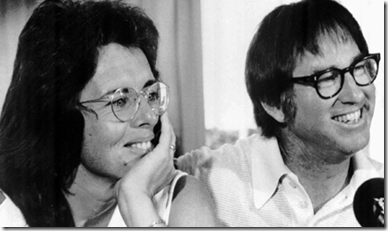The ad has good intentions, but it doesn’t depict reality, and that could be more damaging to girls than no ad at all.
/This new Verizon-sponsored ad, which was made in conjunction with Makers to show how parents unintentionally steer their daughters away from science and math, is receiving a lot of praise for the way it doesn’t focus solely on female body and beauty issues, as well as its willingness to shine the light on the role that parents play in the problem.
Amanda Marcotte of Slate calls it a “blast of refreshing cool air.”
I understand why critics like the ad so much, but here’s my problem with it:
Are there really parents in the world as sexist and stupid as the ones depicted in the commercial?
I’m not sure. If there are parents like this, they are hardly in the majority.
There are four incidents depicted in the commercial during which the girl is supposedly steered away from science.
First, while hiking up a mountain and through a stream while wearing rubber boots, her mother says, “Sammy, don’t get your dress dirty.”
On a hike? Up a mountain? In a stream? Is there some fine dining establishment at the summit with a strict dress code? Is this rocky, mountain trail also the path to Sammy’s kindergarten graduation?
Next, a slightly older Sammy is standing in a tidal pool, holding a starfish. Dad says, “You don’t want to mess with that. Why don’t you put it down.”
A starfish? Not an angry crab. Not a potentially poisonous sea urchin. Perhaps the most defenseless creature on the entire planet: A starfish.
Next, Sammy is hanging spheres decorated as planets over her bed. Her mother pokes her head into her bedroom and says, “This project has gotten out of control.”
Perhaps it’s the use of glitter, which should be banned from the Earth, that has gotten her mother’s knickers in a bunch. I could understand this concern. I’d even be willing to support the mother’s discontent. But other than the possible overuse of glitter, what exactly has “gotten out of control?” Was Sammy’s mother thinking that her solar system would consist of just eight planets, but Sammy foolishly made thirteen?
The last example is the worst. Teenage Sammy is drilling a screw into a model rocket while her older brother looks on. Dad shouts, “Whoa. Be careful with that (drill). Why don’t you hand it to your brother.”
Not a table saw. Not a weaponized laser beam. Not a nail gun. A drill.
I’m not saying that girls can’t use table saws, weaponized laser beams, or nail guns, but as a parent, I can understand the concern for any teenager (or me) using these tools. But a drill is one step removed from an egg beater. It’s one of the most benign of all the power tools. What damage could Sammy possibly do with a drill?
I believe that parents play a role in a girl’s decisions to turn away from science and math. I just don’t believe that it’s typically (or ever) done in such ham-handed, overtly sexist ways as depicted in this commercial.
Most important, unrealistic and exaggerated ads like this make it too easy for parents to watch them and think, “I’d never do anything like that,” while ignoring the more subtle signals that we send to our girls everyday.
When we show parents the worst examples of parenting, we offer them the opportunity to feel good about themselves and their own parenting, when in truth, they may be just as guilty of the same kinds of behavior that this ad depicts, only in more subtle and realistic forms.

